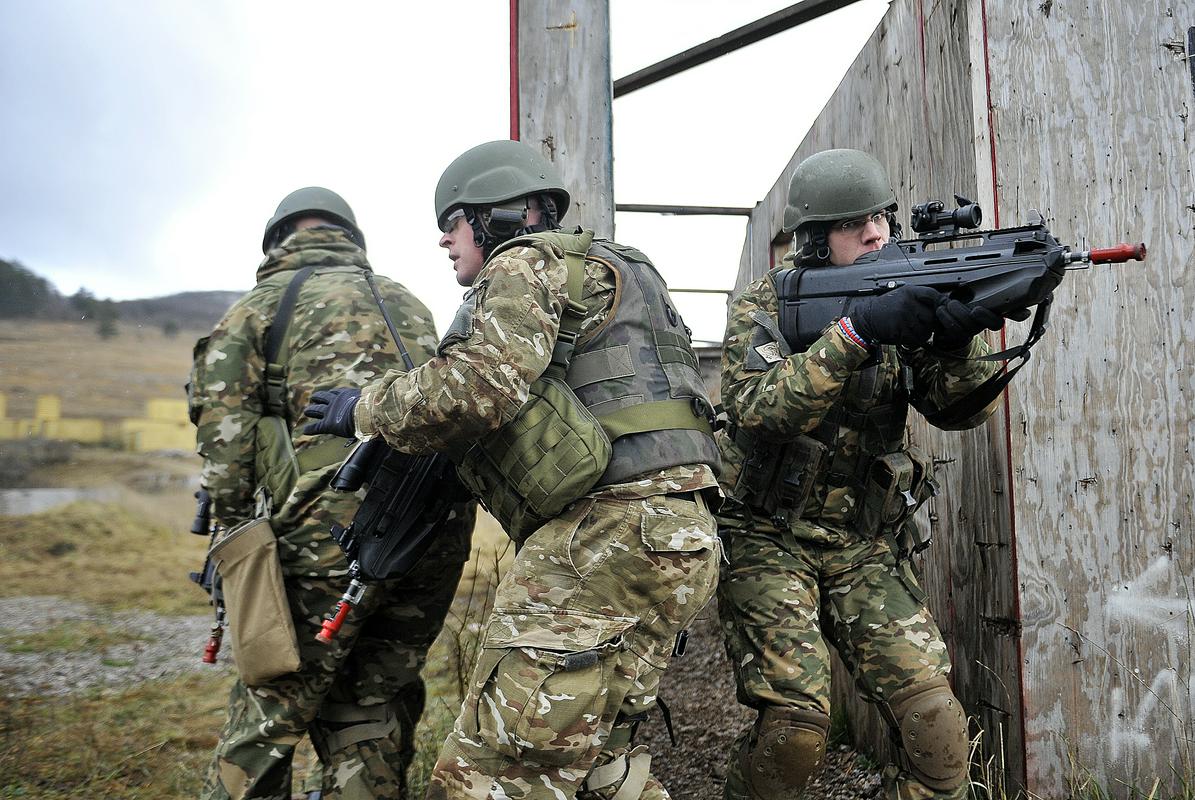
There are many legal and substantive obstacles on the path to opening the Slovenian Army to foreign nationals. Another quick-fix solution to the problem, already being discussed by the Army General Staff, will not solve the issue. But the above-mentioned option is still regarded more as an extreme possibility than a serious option, and is still not mentioned in any of the army's official documents or included in any of the official meeting minutes.
The Slovenian Army never witnessed such a low number of people enlisting in its ranks as it did last year. The General Staff has publicly been warning about the problem for a long time now. Only 137 people decided to enlist, while the number of people that left the army last year was twice as much. With evermore competitive employment opportunities the army is become less and less appealing. "We simply don't get enough new candidates anymore. We would need a soldier's salary of at least one thousand euros net, for enough young people to decide to become soldiers," admits Simon Korez, a representative of the Slovenian Army.
Army salary comparable to that at the Snaga waste company
A comparison with other salaries illustrates the situation. A novice soldier gets a starting gross pay of 1,043 euros. At the same time he has no indefinite employment contract, as contracts are signed for up to five or ten years. And despite the bonus salary award upon signing the contract, the offer is no longer appealing enough. In comparison – a driver of a garbage truck in the Snaga public waste company only has a slightly lower gross pay of 983 euros. And the army's offer is becoming increasingly less competitive with the arrival of new employers in the country. There are no official documents to back the claims, but applicants at the new Magna car paint shop in Hoče say employers there are offering a gross salary of around 1,500 euros for workers with completed high-school education.
Belgium faced similar problems after successfully shifting from a conscription service to a professional based army. In 2004 it decided to open its army recruitment offices to all EU citizens. In the first year alone Belgium received more than five hundred applications, the majority from France and the Netherlands, as one of the requirements for serving in the Belgian army was the knowledge of either the French or Dutch language.
Foreign nationals can also serve in Danish army, but only those already living in Denmark. "It will be taken into account whether you are in the process of applying for permanent residency or citizenship. Your application will be evaluated on an individual basis," explains the Danish ministry's website. The website adds that during the evaluation, it will also be taken into account whether the command of the Danish language will enable candidates to function properly in a military unit under combat conditions.
Unofficially, high representatives of the General Staff and the Ministry of Defence say that opening the door to foreign nationals is a complex process, which the Slovenian Army is considering, but only as an exception. However, the fact that such a possibility exists (currently only at unofficial talks), once again sheds light on the poor staffing and overall situation in the Slovenian Army.

































































